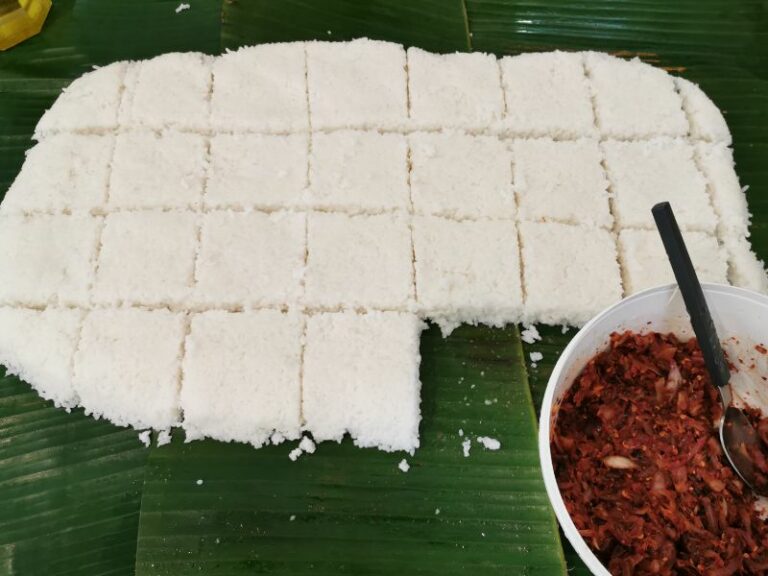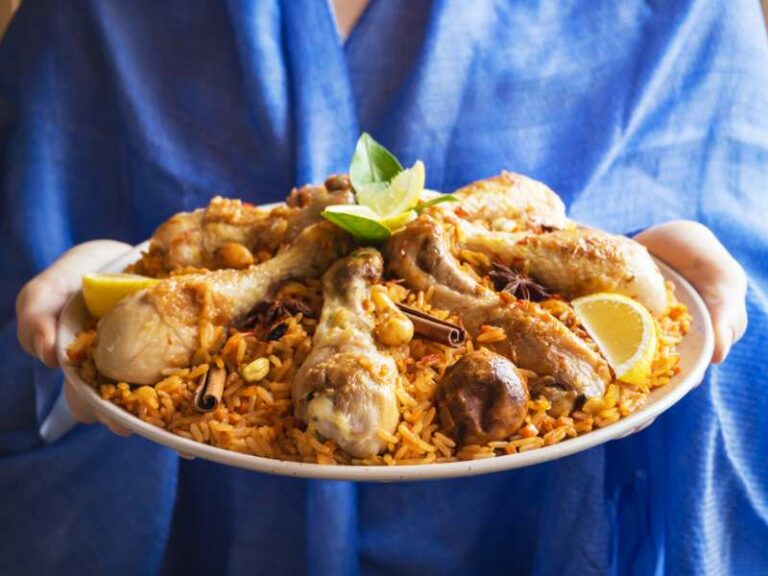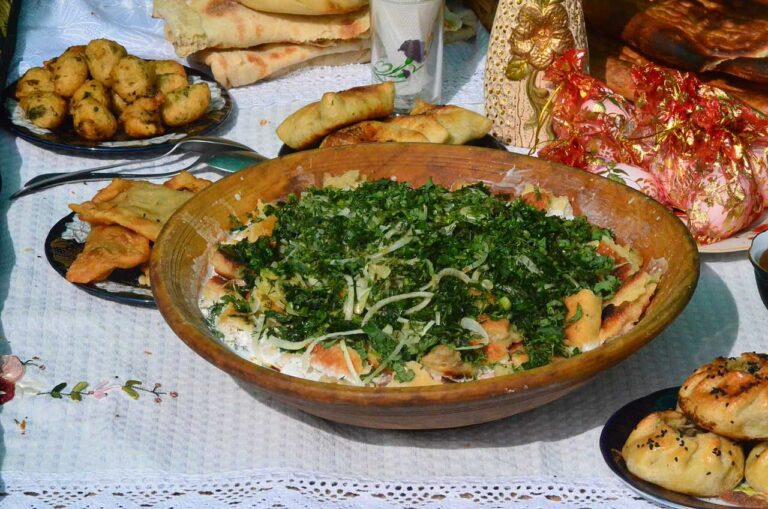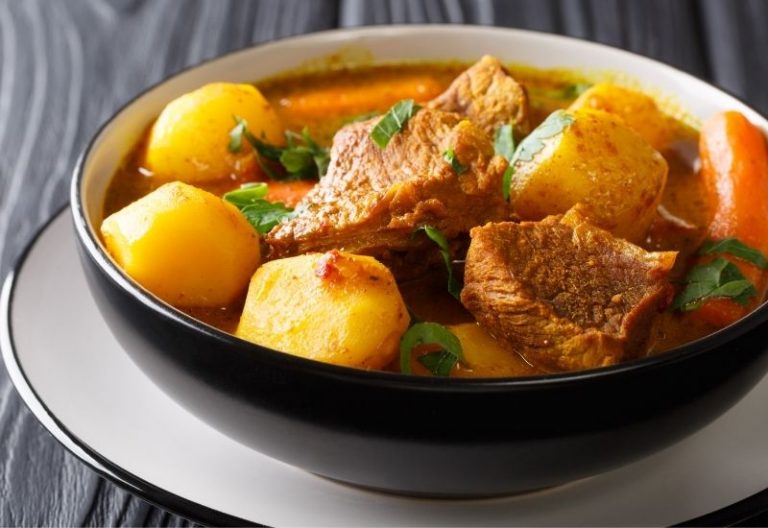Century Egg: Origin, Taste, Benefits & Preparation
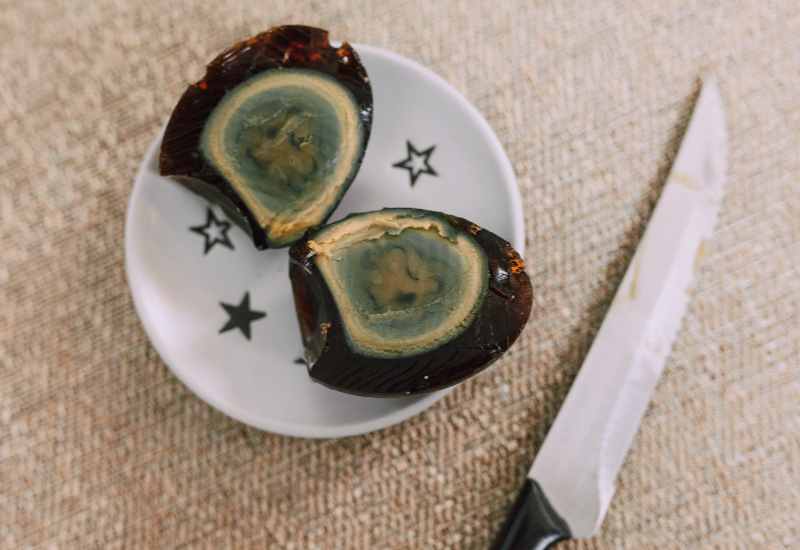
Century egg (or hundred-year egg) is a Chinese delicacy of preserved duck, chicken or quail eggs. They become black in appearance with a dark green yolk after being processed for weeks or months in a clay, ash, quicklime mixture along with salt.
There is a common misconception that century eggs are hundreds or thousands of years old. They are more commonly just a few months old after preservation.
Century egg has an intense taste, interesting serving traditions and fascinating origins. Here’s everything you need to know about Century Egg.
Where Did Century Egg Originate?
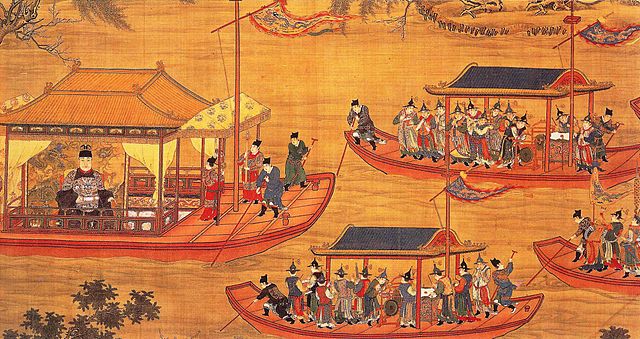
Century eggs are said to have originated in Hunan, China during the Ming dynasty some six centuries ago.
The most popular story goes that a man discovered them during the construction of his home, when he saw duck eggs that had been lying in the slaked lime for two months. He ate them and enjoyed the taste, so he added salt to improve the flavour.
Another, more romantic story, is of a man who left eggs in the garden of a woman he wanted to court, however she didn’t discover them until she cleaned the ash pit half a month later. Thus, leading to the creation of the century egg.
Despite a batch of fascinating monikers such as Century egg, Millennium egg, 100-Year egg and so on, the so-called ‘Century’ egg is, at most, a few months or usually weeks old.
It’s also called the ‘pine-patterned egg’ because some of them have pine branch-like patterns on the egg white. This Chinese dish is not only famous in China, but throughout East Asia where they have their own names for it.
Most likely, this dish was created during the need to preserve eggs in the past, so they were coated in alkaline clay which led to the creation of century eggs.
How To Prepare Century Egg
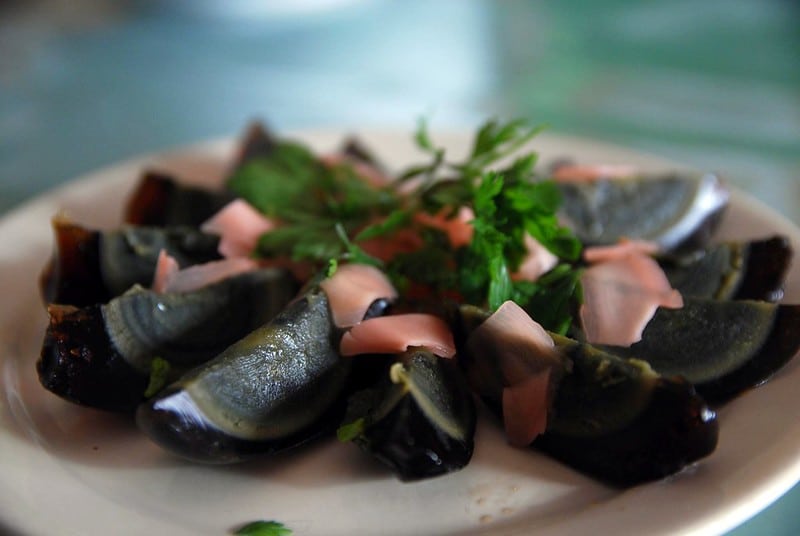
Century eggs are either chicken or duck eggs that are preserved in an alkaline solution for a length of time. Traditionally, they are prepared by putting the eggs in a mix comprising lime, salt, and ash, after which they are wrapped in rice husks for weeks.
The modern method is also quite straightforward, substituting those ingredients for table salt, sodium carbonate, and calcium hydroxide, then wrapping them in plastic instead. After that, all you need to do is peel and rinse as they are ready to be eaten.
One huge misconception is that century eggs are ‘spoiled’, this is not true since they’re actually just preserved for a long time and no bacteria or mold is involved in the process.
Century Egg Health Benefits
Century egg has a wide range of benefits, particularly over traditional eggs including:
- Great source of Iron
- High protein nutrition
- Great source of Vitamin D
- Excellent source of Selenium
- Lowers blood pressure
- Increases liver function
- Improves vision
How To Eat A Century Egg
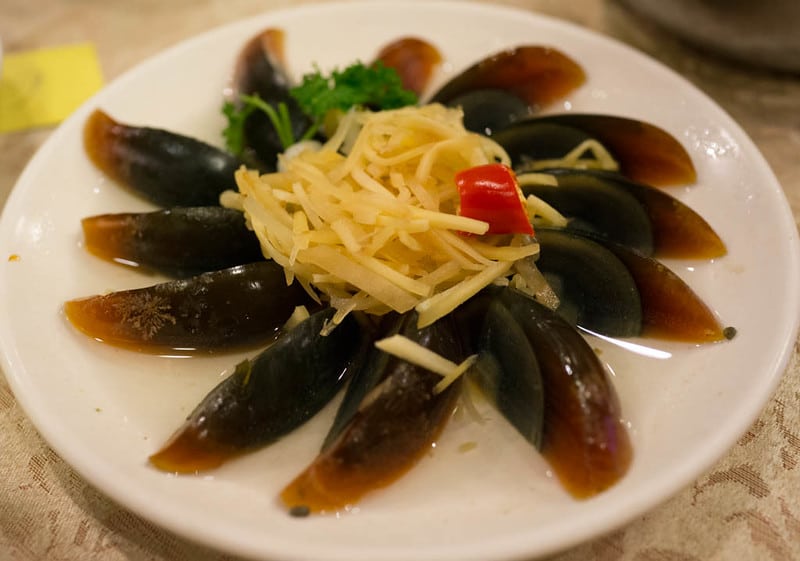
Century eggs can either be served as a main dish or as an appetizer. For instance, a well-known Cantonese street food is century egg sandwiched between slices of pickled ginger root.
They are also commonly consumed with chilled tofu in Shanghai and Taiwan. Century eggs can be sliced and added to an omelette made with fresh eggs, this dish is called ‘old-and-fresh’ eggs.
Cutting century eggs into chunks and adding them to other dishes such as congee, soup, tofu salad, or even pastries is quite common. While century eggs are treated as a delicacy in the west, they’re actually quite common and easily available in East Asia.
How Does Century Egg Taste?
Though century eggs make a strange first impression on the uninitiated, they are enjoyed by millions of people.
In the process of their preparation, the flavourless proteins and fats are broken down to become more flavourful.
The egg white becomes a dark brown translucent jelly with a salty taste, while the egg yolk gains a dark green or grey colour.
The consistency of the egg is quite smooth and creamy with a succulent taste; combining it with tuna, as is popularly done, leaves a silky taste in one’s mouth.
The eggs predictably have a very strong smell and intense flavour due to the ammonia and hydrogen sulphide present. Therefore, it’s recommended for first-timers to cook the egg and not eat it whole.
However you choose to prepare the dish, we’re hoping it’s a dish you savor!
How Much Does Century Egg Cost?
Century Eggs are also widely consumed in Vietnam where they cost just VND5,000 which is equivalent to about 21¢. They can also be found throughout the world in Asian supermarkets where you can pick them up for less than $5.
Trying Century Egg
If you’re still curious about trying century egg, check out this video which shows where to buy the eggs and the taste.
Century egg is by far one of the strangest foods in the world. If you find yourself in China it might be worth seeking it out and trying it prepared in the traditional way.


